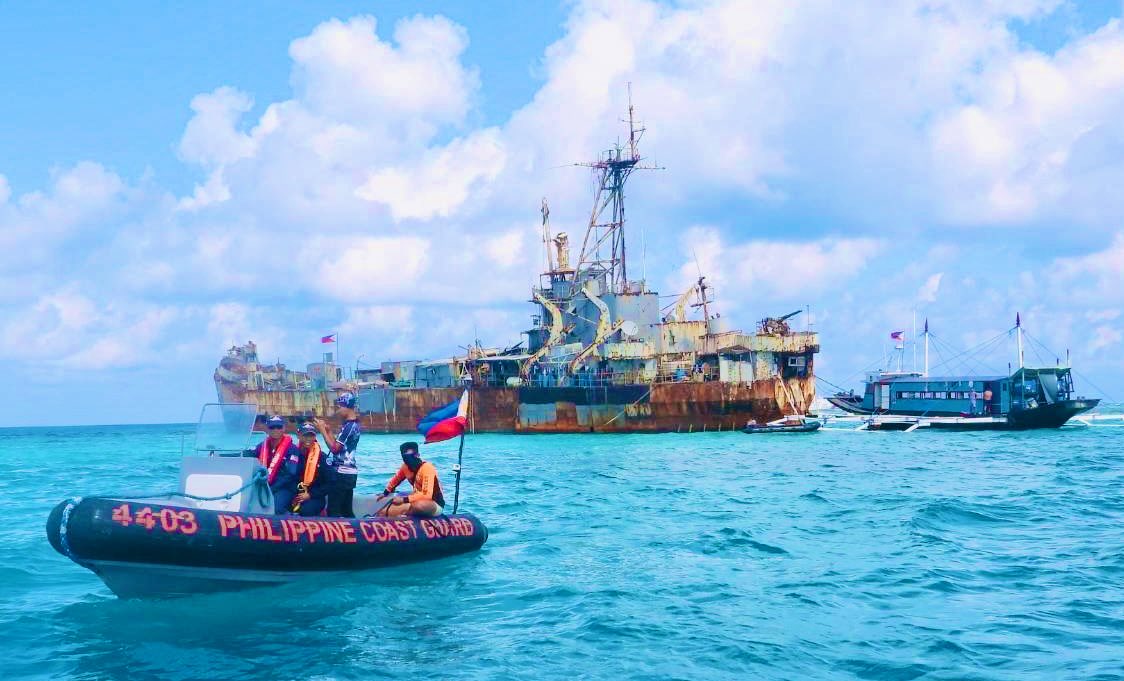A Philippine Navy personnel sustained severe injuries after the China Coast Guard’s (CCG) “intentional ramming” of the vessel he was aboard during the rotation and resupply (RORE) mission in Ayungin Shoal in the West Philippine Sea (WPS) on Monday, the Armed Forces of the Philippines (AFP) said.
China and the Philippines have accused each other of being at fault for Monday’s collision. The territorial dispute between China and the US-aligned Philippines is at increasingly high risk of escalating into a conflict involving the two countries, analysts have said.
“The injured personnel had been safely evacuated and received prompt medical treatment,” AFP public affairs office chief Col. Xerxes Trinidad said in a message to reporters.
No specific details on the extent of the navy personnel’s injury and its cause were provided.
In a regular press conference China’s Foreign Ministry spokesperson Lin Jian’s claimed that on June 17, one supply vessel and two speed boats of the Philippines, without permission from the Chinese government, intruded into waters near Ren’ai Jiao in China’s Nansha Qundao in an attempt to send materials, including construction materials, to the military vessel illegally grounded at Ren’ai Jiao.
“China Coast Guard took necessary control measures to stop the Philippine vessels in accordance with the law. The maneuvers at the scene were professional, restrained, justified and lawful,” the spokesperson said.
From his side the AFP public affairs office chief Trinidad noted that “the Chinese coast guard’s continued aggressive behavior and unprofessional conduct towards a legitimate humanitarian mission is unacceptable.”
The U.S. State Department called the incident the latest in a series of China’s provocations to impede critically needed supplies from reaching service members stationed at the BRP Sierra Madre on June 17.
“PRC vessels’ dangerous and deliberate use of water cannons, ramming, blocking maneuvers, and towing damaged Philippine vessels, endangered the lives of Philippine service members, is reckless, and threatens regional peace and stability,” the U.S. State Department added.



